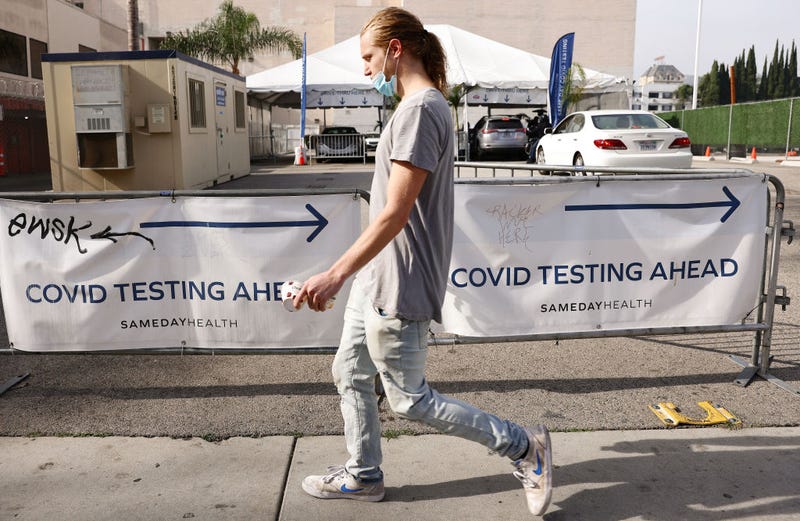
We’ve seen countless mutations of the COVID-19 virus in the nearly two years since it first emerged.
And it seems that as the pandemic continues, the only constant is change.

Scientists have spent the last two years studying the coronavirus and watching as predictions on how this virus might behave break every expectation, and it seems as if the only next thing to expect is more evolution.
"This is a fast-evolving RNA virus," said Dr. Shannon Bennett, Chief of Science at the California Academy of Sciences on KCBS Radio's "Ask an Expert" with Holly Quan and Dan Mitchinson on Tuesday. 'So it will keep evolving, and it will evolve pretty quickly.'
What is difficult to predict is exactly how it will evolve, and when the mutation that it will evolve into will set into an area of concern, she said. "And that’s the game we’re in right now, is trying to understand the meaning of the evolutionary change we’re seeing in omicron."
While the family of viruses that COVID-19 comes from is familiar, as it also includes the common cold, the COVID-19 virus acts quite differently.
"The big question of our time is, 'How long will we be under this sort of capture-mode of the virus,'" said Bennett, where the evolutionary rate is particularly high as it "expands into this new human niche," she said.
The follow-up question is then, when will the virus settle down, and humans can start to just live with it year after year.
It's not quite clear how many cases of omicron are coming out of California, but early numbers from researchers out of San Diego are showing that about 68% of positive cases being sequenced are omicron, said Bennett.
"We can probably predict in California, most new cases today are omicron," she said.
A lot of the virus' evolution is it learning how to more effectively transmit from one person to another. "You might think of a lot of that change as fine-tuning to the human host," said Bennett.
The virus' biology isn't going to be the only thing that determines this latest spike’s trajectory, it's also going to rely on how well society responds this time around.
"It's all entangled, it's really confounded," she said. If people respond to the new wave aggressively, hunker down and cancel holiday plans, particularly in areas where vaccination is low, then we have a pretty good chance of tapering off the surge.
In a society where people aren’t restricted in any way, the height of the new wave will only be reached once the virus runs out of susceptible hosts, said Bennett, which is a way of saying herd immunity. "We do not have the hospital infrastructure to let that play out," she said.

